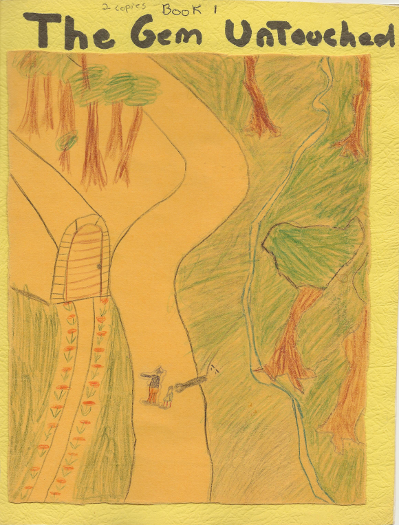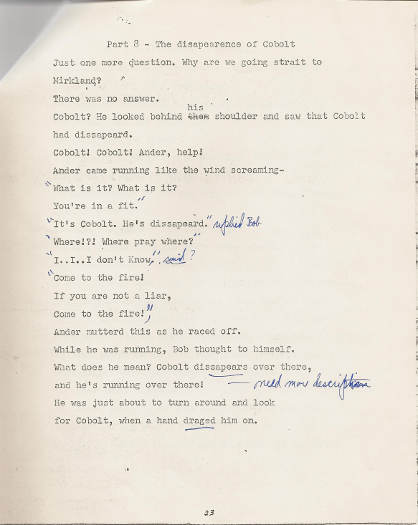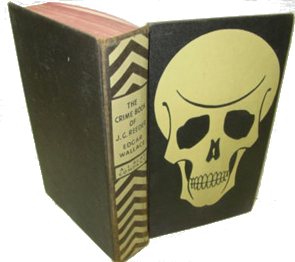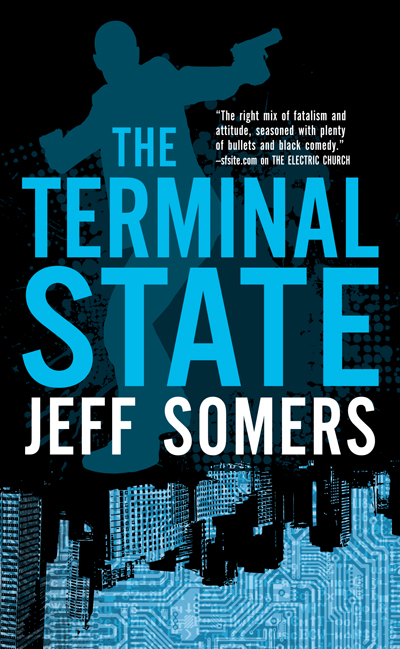 I’VE been writing since I was nine years old or so. That’s a lot of words, most of which are terrible, ugly words no one should ever see, and which I keep under lock and key for the protection of society as a whole. As you age, as with just about everything else, you slowly perceive eras in your life, chapters. Most people have a distinct era in their lives labeled Childhood, for example, and maybe others labeled High School or College or This Guy Touched Me at Summer Camp 1998 or whatever[1]. Once you hit a certain age you can see the dividing lines pretty clearly.
I’VE been writing since I was nine years old or so. That’s a lot of words, most of which are terrible, ugly words no one should ever see, and which I keep under lock and key for the protection of society as a whole. As you age, as with just about everything else, you slowly perceive eras in your life, chapters. Most people have a distinct era in their lives labeled Childhood, for example, and maybe others labeled High School or College or This Guy Touched Me at Summer Camp 1998 or whatever[1]. Once you hit a certain age you can see the dividing lines pretty clearly.
It’s no surprise I’m at that certain age, and I can clearly see these eras not just in my social and emotional life, but in my writing as well. I mean, I’ve been writing every day for decades, through some of the most tumultuous and ridiculous eras of my life, like She’s So Beautiful I Swear I’d Sleep with Her Brother, or The Desperation’s Gone Part III. It shouldn’t be any wonder that I can also see distinct eras in my own writing, everything organized not necessarily by the events going on in my admittedly bourgeois and dull life, but by the themes and development of the words themselves.
Now, this sort of thing is navel-gazing at its worst, of course. Sitting here going back over your reams and reams of turgid, purple prose and sighing contentedly as you note the first time you played with an unreliable narrator, or the bizarre period you went through trying to write everything as a second-person dialog, or your string of really neat ideas that came so effortlessly and now you sit and blood pops out of the pores on your forehead because you can’t think of anything nearly as good to write and the sad thing is you never even sold those great stories and and and
Uh, sorry, I lost my train of thought. The point would have been that even for this solipsistic zine, a serious and thoughtful review of the strata formed in my largely unpublished writings would be a new low. That’s okay, we’re just going to focus on one era: The very earliest one, the first things I ever wrote in my entire life. Now, you’re used to grown-up Jeff, who is annoying and endrunkened and kind of an ass (don’t pretend, I know what the Internet chatter on me is), so your instinct when you read an essay like this is more than likely to knee me in the balls. But you see, when I wrote the work we’re about to discuss, I looked like this:

That’s right: I was frickin’ cute.
The reason I started thinking about all this is because of a conversation I had over dinner a few weeks ago. A friend was telling me that his young son has some aspirations to write, and wondered if I might be willing to chat with the kid some time. Normally I regard other people’s children the same way I regard enraged monkeys: I stay as far away from them as possible; if they’re in a cage of some sort I enjoy taunting them. But I actually told this guy I’d be happy to chat with his kid if he really wanted, because of Mr. Galvin.
Mr. Galvin was a co-worker of my father’s. My Dad was inordinately proud when his son wrote a 30-page Fantasy novel (The War of the Gem; it eventually turned into a 100-page trilogy—the cover of the first manuscript is at the beginning of this post) and handed out photocopies to everyone at his job. Mr. Galvin read the story seriously, and returned it to me a few days later like this:

That’s right: My very first copy-edit. He was nice enough to not mark every single mistake, and I’ll never forget the revelation it was to me that you needed to use punctuation marks like quotes on a regular basis. Up ’til then I think I regarded punctuation more like optional garnishes than necessary components.
It was the first time someone who wasn’t Mom or Dad had ever taken me seriously as a writer, and it was exhilarating. It was, of course, the first and last time I enjoyed being copy-edited, but it remains a highlight of my early life. I have no idea what’s become of Mr. Galvin—in fact, I don’t know anything at all about the man, to be honest; I was pretty young when he worked with Dad and after that I spiraled pretty quickly into the era known as I Am a Jackass Teenager but Don’t Seem to Know It, during which I valued nothing and complained a lot, mainly to people who weren’t listening to me.
It was probably a good thing that my first brush with being taken at all seriously as a writer had to do with being edited, as this is the general relationship the writer has with everyone. You write something, you show it to people, and there commences several decades of people telling you that you are Doing It Wrong. So I’m probably lucky to have gotten that splash of cold water in the face right off the bat, as it likely inured me to, well, pretty much the rest of my life.
And thus my first-ever Writing Era, the You Must Comprehend Me Via Magic, ended, and my second Writing Era, Yes Everything I Write is A Recreation of The Last Book I Read and Also Too I am The Main Character and I Have Super Powers to Punish Mine Enemies began. And a glorious time it was, too. Thanks to Mr. Galvin, I started using quotation marks in my prose, making it slightly more understandable, and this began a series of events culminating in me actually getting paid to write. Hooray for me! And Too bad for society.
My current Life Era? Simple: These Damn Cats are My Only Source of News, but Damn This Bourbon is Delicious.
————————————-
[1] If you’re me, you have eras like Drinking on Jersey City Street Corners, Post-Confirmation Church Attendance, Swearing Off the Booze I, II, III, IV, and What Do You Mean I Don’t Pay My Taxes, Why Do You Think I’m Always Broke?








